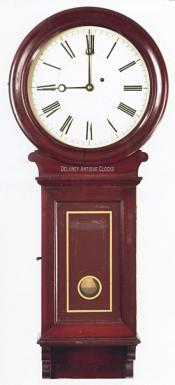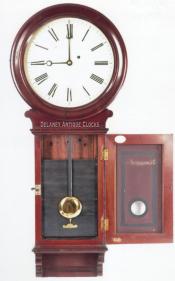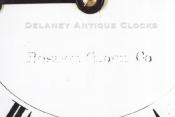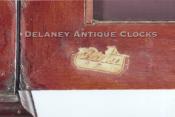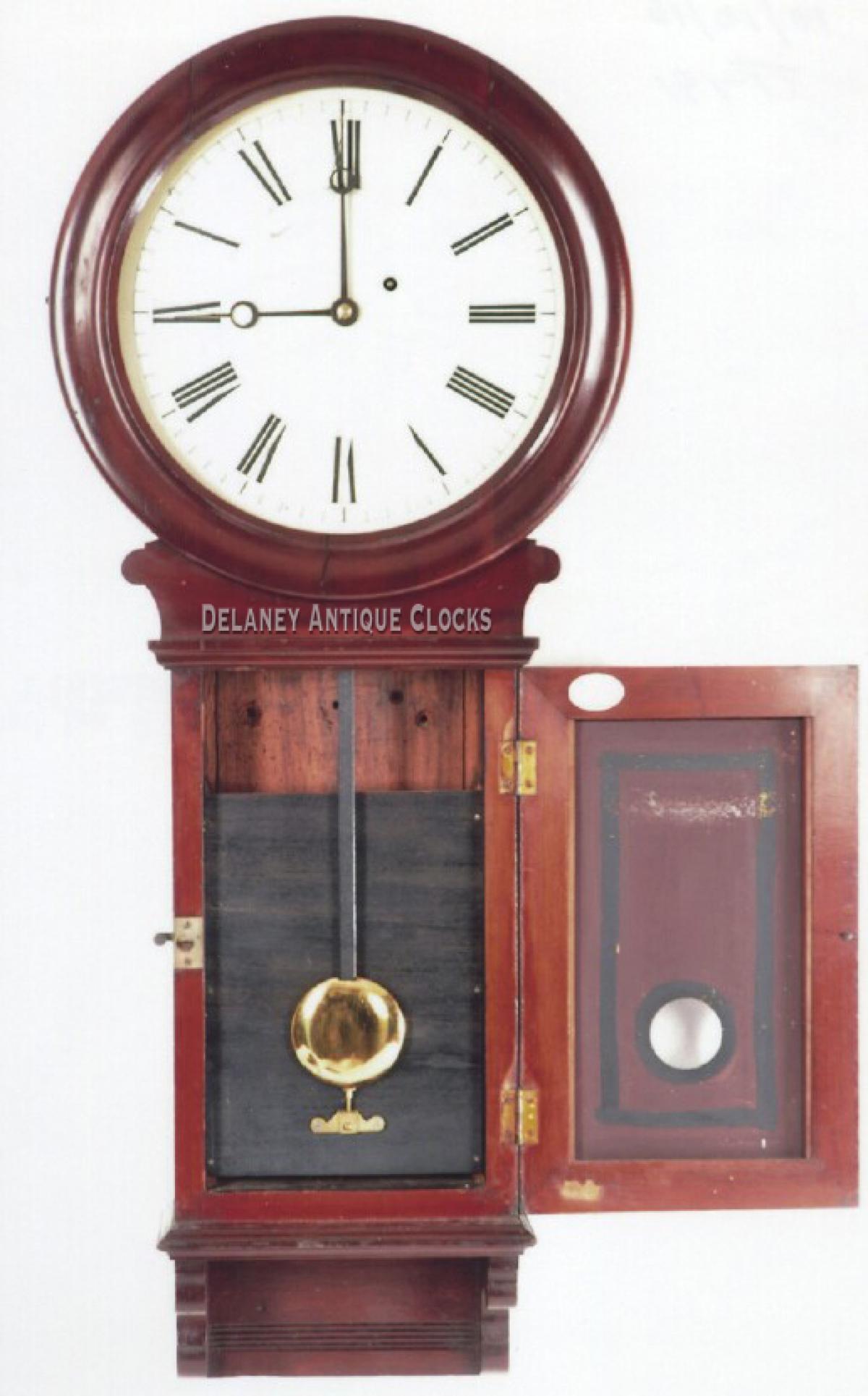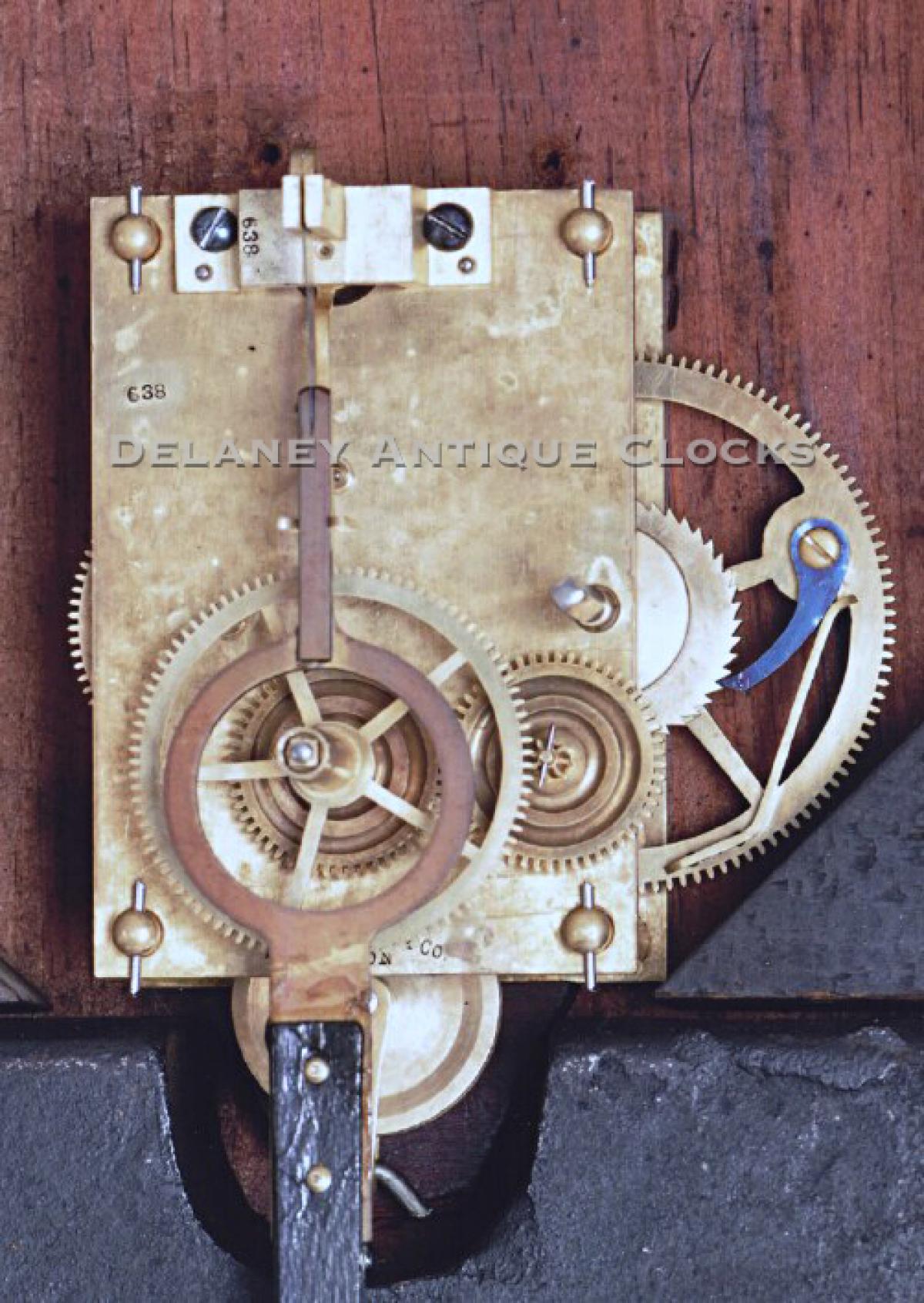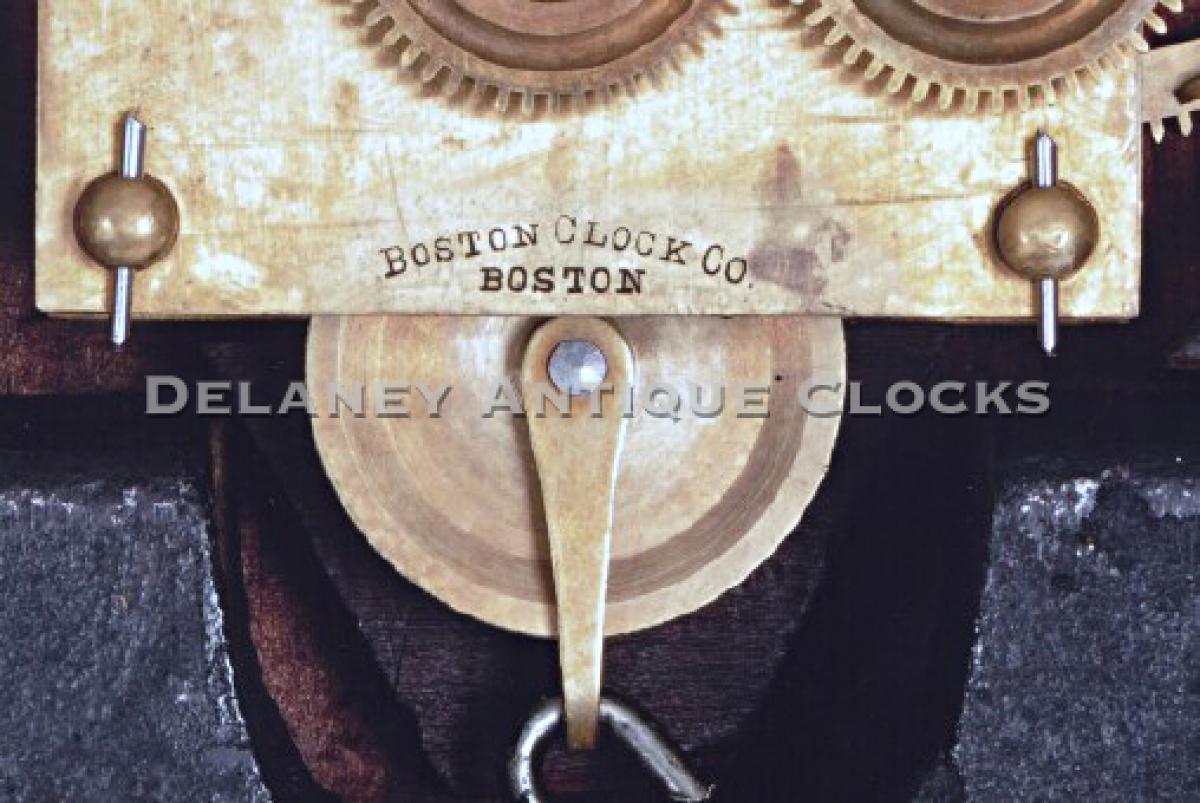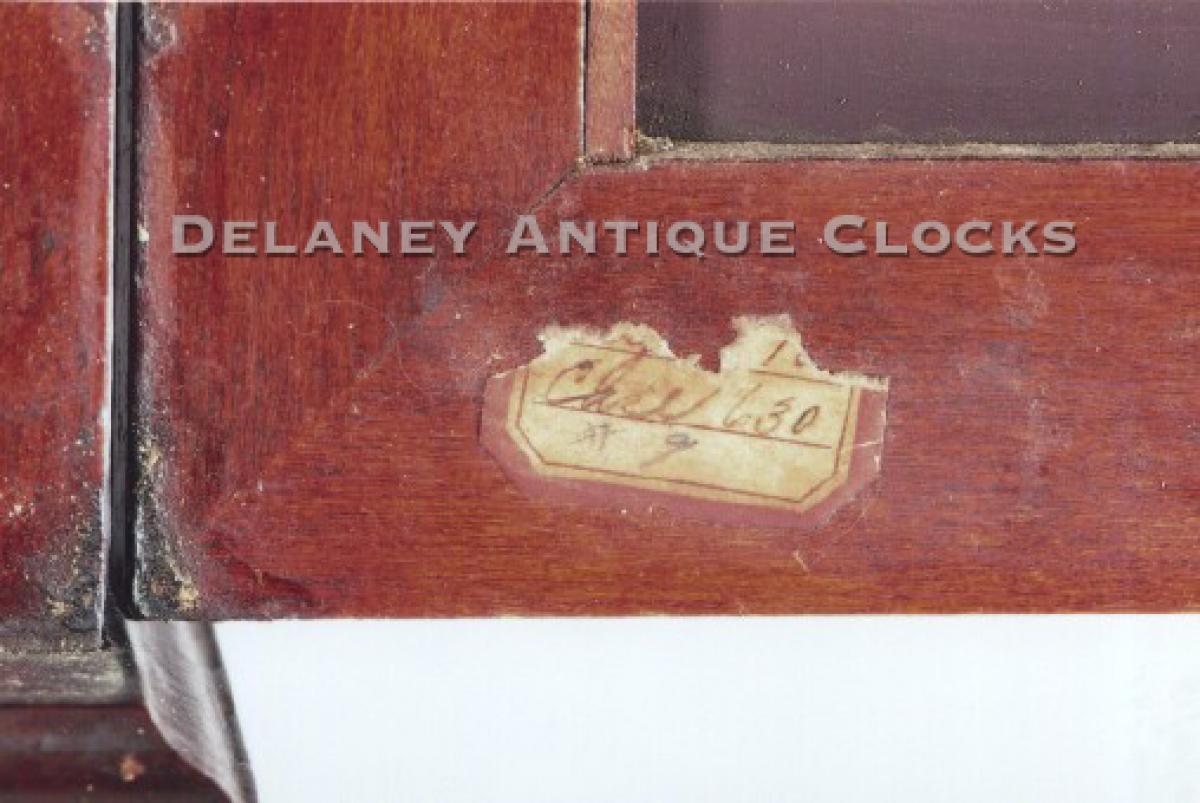Boston Clock Co., Boston, Massachusetts. No 638. Wall clock. TT-191.
The Boston Clock Company was organized by Joseph H. Eastman & James Gerry on May 29, 1884. It was actually located in Chelsea. This Company was formed as the successor to the Harvard Clock Company. Joseph H. Eastman became the manager of this new firm. In January of 1894, the Boston Clock Company was sold to the Ansonia Clock Company of Brooklyn, New York. All tools, machinery, and patents were included in the sale. In March of the same year, Joseph Eastman and others tried to revive it as the Eastman Clock Company the following year. This new firm lasted only one year. The Boston Clock Company manufactured clocks predominately in the style of the crystal regulator, carriage clocks, and other mantel clocks in marble cases. A few wall clocks were produced. This model pictured is similar to the Howard model No. 70 or the Chelsea No. 1, although this case is longer.
This is a very popular form having a circular wooden bezel and a long drop underneath it. Many other clock companies made similar clocks which sold well. This case appears to be maple and retains its original red wash, which is clean and stable. A nice design element is the ears incorporated into the case construction and positioned below the bezel. The bezel is fitted with glass and opens to a painted dial. The dial is painted on a heavy zinc sheet and measures 13.5 inches in diameter. The time ring is 11.5 inches in diameter. The dial is signed by the manufacturer, “Boston Clock Co.” across the center. This block letter signature is now somewhat faint. The movement is brass and is die-stamped by the Maker on the front plate. It is numbered “638” in two locations. This number can be found on the front plate and on the bridge. The front plate is also stamped “22” on the top edge. This movement is weight driven and is designed to run for eight days. The pendulum rod is wood, and the bob is brass. The motion of the pendulum bob can be viewed through the opening in the painted tablet in the door.
This clock case is approximately 35.75 inches long overall and was made circa 1888. It is in wonderful original condition.
Inventory number TT-191.
The Boston Clock Company was organized by Joseph H. Eastman, James Gerry, and others on May 29, 1884. It was actually located in Chelsea, Mass. This company was formed as the successor to Joseph H. Eastman's Harvard Clock Company 1880-1884. Joseph H. Eastman became the manager of this new firm. This company failed in 1895, and in March of the same year, Joseph Eastman and others tried to revive it as the Eastman Clock Company. This new firm lasted only one year and eventually became the Chelsea Clock Co. in 1897.
The Boston Clock Company manufactured clocks predominately in the style of various crystal regulators, carriage clocks, and other mantel clocks in marble cases. These clocks often featured a compensating balance wheel spring-powered movement. A small number of weight-driven wall clocks were also produced. Most of which were similar in form to the Howard model No., 5 & No., 70 and the Chelsea No., 1.
Boston Clock Company clocks were sold through salesrooms that included Smith & Patterson in Boston, G. S. Lovell & Co in Philadelphia and Wm. H. Atwater in New York.

